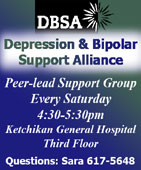 By CAITLIN CLEARY Pittsburgh Post-Gazette October 04, 2006
Like everyone else, Amish people are struggling to come to grips with the shootings of 10 Amish schoolgirls - five of whom died - by milk-truck driver Charles Carl Roberts IV, who then took his own life. But if the Amish's deep faith in God and strict adherence to biblical principles of pacifism set them apart from the mainstream American culture, they also help the Amish make sense of an act that defies reason.
"It is terrible that somebody did this, and my heart aches for anyone involved, for the children," said Andrew Troyer, who lives in an Amish settlement near Conneautville, Pa., and runs a family rope-making business. "But I feel the most sorry for the person who did it, and I'll tell you the reason why - because he can't get forgiveness no more, what's done is done. After death, there is no more change." Troyer quoted from the Book of Matthew, Chapter 6, which says if a man does not forgive another's trespasses against him, his own trespasses will not be forgiven by God. "Our blood-red sins he will wash white as snow," said Troyer. "Forgiveness is a choice, but it is not an option if we want to be saved." Turn-the-other-cheek, love-your-enemies pacifism is inextricably linked to nearly every aspect of Amish daily life. Some Amish people use guns to hunt, and most agree with the bumper-sticker sentiment "Guns Don't Kill People, People Kill People." But Amish do not believe in using guns against humans, not in self-defense - not even pretending to have a gun, said Troyer. "If I'd have seen this guy (Roberts) walking into the schoolhouse, mind you, I'd have tried to stop him," he said. "It wouldn't be a sin to hold him down and take his weapon. We would not shoot him, though. Thou shalt not kill. I'd want to talk to him and tell him about the word and the savior; then he could make his confession to the Lord and live a righteous life." The Amish are Anabaptists, a Christian theological movement that grew out of the Protestant Reformation of the 16th century. One of its central tenets is adult baptism - the belief that baptism should be a conscious choice undertaken by adults, a public confession that one is "born again" in their faith. But that doesn't mean that the un-baptized schoolgirls who died at Roberts' hands are not saved, said Troyer. Baptism is only the outward ceremony that displays someone's inner conversion. "The baptism itself doesn't save someone, Jesus Christ saves us," he said. "A sinner can't be baptized and think he gets a ride to heaven." According to Amish belief, said Troyer, young children are innocents, not "accountable" until they reach a certain age. They follow the direction of their mother and father, come to learn right from wrong, and then, by age 10 or 11, make the choice to live for God or for Satan. But as long as they are believers, they will be saved. "They read the scripture, they knew of God, their parents had devotionals every day - they were taught and trained to know God," he said. "The children who died in this, God has them in his hands; the word of God says so. They're in heaven." Troyer's community of 50 to 60 households has been labeled New Order Amish; they embrace certain technologies, such as the telephone, as long as they function to hold families together. They rely on horses and buggies and ride bicycles, using taxi service for long distances. Following the slow extinction of small farms, they have adapted well to cottage industries. In keeping with the principle of separation of church and state, most Amish people do not vote. They will pray for leaders to make the right decision, said Troyer, which they believe is more effective than voting. "We consider ourselves pilgrims and strangers going through this life on Earth," he said. "Our citizenship is not here on Earth."
Distributed to subscribers for publication by Scripps Howard News Service, http://www.shns.com Publish A Letter on SitNews Read Letters/Opinions
|
||


